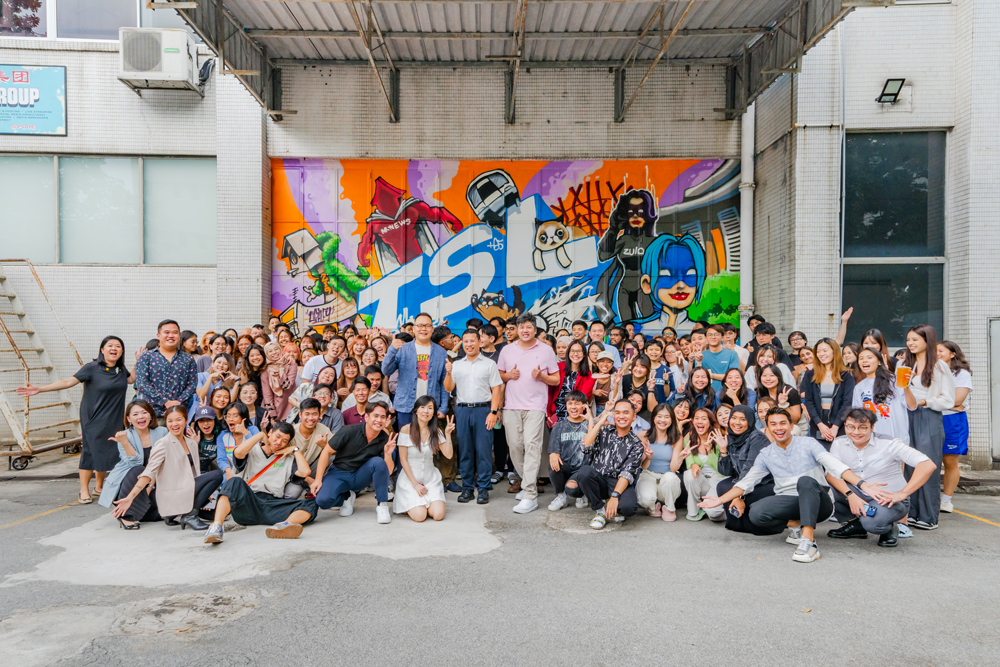Startup vs traditional media in Singapore
Media fresh grads, if you’ve ever wondered whether to dive into the hustle of a buzzing media startup or stick to the safer shores of a traditional media giant, you’re not alone. It’s like deciding between a chaotic but thrilling buffet and a fancy set meal—both have their perks, but the experience is wildly different.
In Singapore’s media industry, there’s no shortage of opportunities. You’ve got nimble startups shaking things up with viral content, while stalwarts like to keep the wheels turning with their tried-and-tested formulas. The real question is: where do you fit in?
Let’s break down the differences, so you can figure out which side of the media spectrum is calling your name.
1. Work culture
Startup media jobs

Image credit: Unsplash
Startups are typically known for their agile and collaborative work culture. Everyone wears multiple hats, so you could find yourself managing social media in the morning and brainstorming video campaigns by the afternoon.
There is often less hierarchy, and ideas are welcomed from everyone regardless of title or seniority. Think of Singapore-based companies that were once startups like The Smart Local and SGAG or in their early days—businesses where innovation thrives and every contribution counts.
The vibe? Casual, energetic, and fast-paced. Often, you can’t expect a predictable workday. For those who thrive in dynamic environments and enjoy autonomy, this is a dream.
Traditional media jobs
In contrast, traditional media organisations tend to follow established processes and hierarchies. Companies like Mediacorp, SPH Media, or international brands with a Singapore presence often come with clearer job scopes and well-defined departments. You’re more likely to work within your role’s boundaries, e.g., if you’re in editorial, you’ll mostly focus on writing, sub-editing, or advertorial content.
The vibe? Professional, structured, and systematic. While it may lack the adrenaline rush of startups, traditional media jobs offer stability and clear progression pathways, which appeal to those who value routine and predictability.
2. Job roles & responsibilities
Startup media roles

Image credit: The Smart Local
In a media startup, your role is likely to be diverse and hands-on. Job descriptions are flexible, and you may be expected to take on tasks outside your comfort zone. For instance, a content creator at a small local media startup might find themselves writing blog posts, hosting TikTok videos, and tracking analytics all at once.
Skills you’ll gain: Multitasking, creativity, problem-solving, and adaptability.
Example: Team members may often juggle multiple responsibilities—from writing travel guides and reviewing local food spots to appearing in YouTube videos and brainstorming creative campaigns for clients.
Traditional media roles
Traditional media organisations typically have specialised roles. If you’re a journalist, you write. If you’re a producer, you manage production. Roles are less fluid, and your responsibilities will usually align closely with your job title.
Skills you’ll gain: Deep expertise in your niche, attention to detail, and experience with established media workflows.
Example: A journalist at a traditional media company would focus on in-depth reporting, writing, and ensuring content adheres to professional editorial standards.
3. Work-life balance
Startup media jobs
In startups, work-life balance can be a double-edged sword. With tight deadlines and lean teams, working late or during weekends is not uncommon. On the flip side, startups often provide greater flexibility—like remote work arrangements or off-peak hours—to offset intense workloads.
Consider: Are you willing to hustle in exchange for flexibility and excitement?
Traditional media jobs

Image credit: Unsplash
Traditional media jobs often provide more predictable hours, though this depends on your role. For instance, newsroom journalists covering breaking news may face long, irregular shifts, while other roles maintain a standard 9-to-6 schedule. Established companies also typically have stronger HR frameworks that prioritise employee welfare.
Consider: Do you prefer stability and well-defined work hours?
4. Career progression
Startup media careers
Startups offer faster career progression—partly because they are smaller, and your contributions are more visible. If you prove yourself capable, you might move up to leadership positions quickly or even carve out a niche role. However, since startups are riskier by nature, there’s also the possibility of sudden changes, like funding challenges or pivots.
Traditional Media Careers

Image credit: Unsplash
With clear structures in place, traditional media companies offer well-defined career ladders. You may have to spend more time in junior roles before progressing, but established companies often provide training programmes and resources for professional development.
5. Compensation & benefits
Startup media jobs
Startups may not always offer the most competitive salaries at the outset, especially if they are in early funding stages. However, they often compensate with perks like stock options, flexible working conditions, and an innovative culture.
Traditional media jobs
Traditional media organisations, being larger and more established, often offer more competitive salaries, structured bonuses, and comprehensive benefits like healthcare and retirement plans.
How to decide?
Ultimately, choosing between a startup and a traditional media job comes down to your career priorities and work style. Here are some key questions to ask yourself:
- Do I thrive in a fast-paced, flexible environment with broad responsibilities? (Startup)
- Do I prefer a structured workplace with clear roles and progression? (Traditional Media)
- Am I willing to trade work-life balance for a shot at rapid career growth? (Startup)
- Do I value stability and competitive benefits more? (Traditional Media)
The bottom line
Both startup and traditional media roles offer unique advantages, and neither is inherently better than the other. If you’re a fresh grad or someone switching industries, consider trying out internships or contract roles in both settings to see where you fit best.
At the end of the day, Singapore’s media landscape is diverse, offering plenty of opportunities to carve out a meaningful career—whether that’s in the hustle of a startup or the steadiness of traditional media. So go forth, explore, and find the right fit for you.
Looking for media jobs in Singapore? Browse the latest roles on Cultjobs and take the first step towards your dream career.
Check out job listings on Cultjobs
Cover image adapted from: Unsplash




